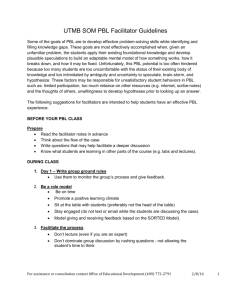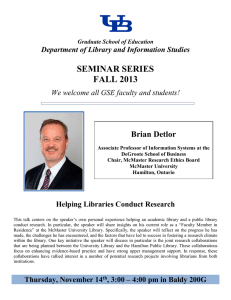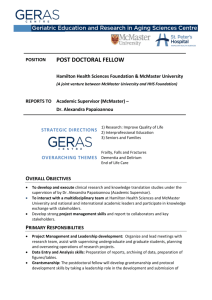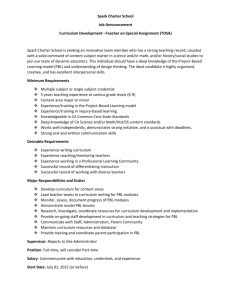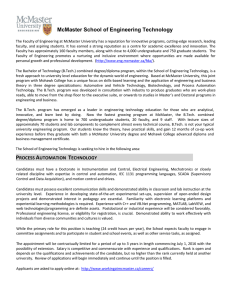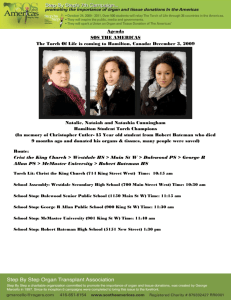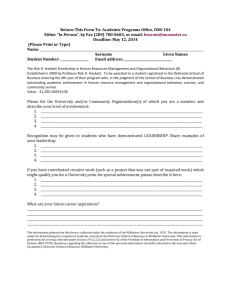Person-Based Learning (PBL) within a Small Group Problem
advertisement
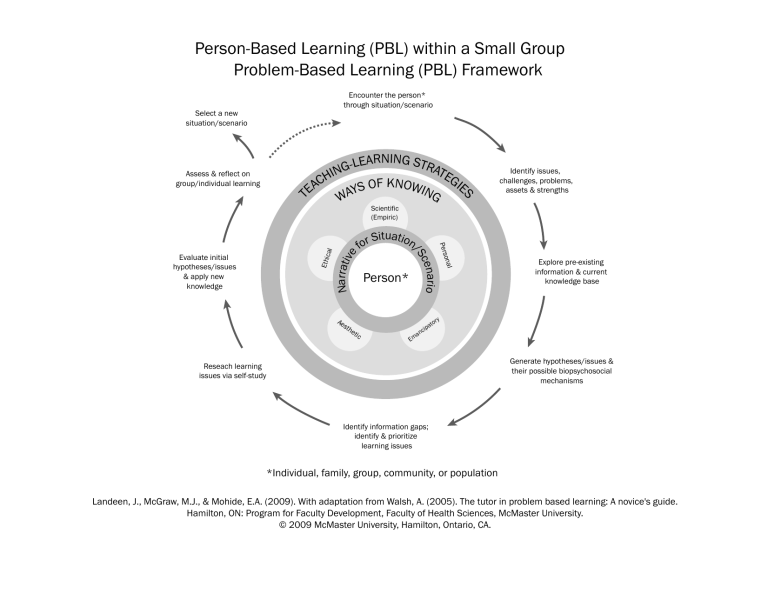
Person-Based Learning (PBL) within a Small Group Problem-Based Learning (PBL) Framework Encounter the person* through situation/scenario Select a new situation/scenario S ARNING STR G-LE ATE N I H GI C KN E YS OF OWING EA A W T Assess & reflect on group/individual learning Identify issues, challenges, problems, assets & strengths Narrativ e Ethi al Person* Ae sth eti c on Pers Situation / for enario Sc Evaluate initial hypotheses/issues & apply new knowledge cal Scientific (Empiric) Explore pre-existing information & current knowledge base ry ato cip n ma E Generate hypotheses/issues & their possible biopsychosocial mechanisms Reseach learning issues via self-study Identify information gaps; identify & prioritize learning issues *Individual, family, group, community, or population Landeen, J., McGraw, M.J., & Mohide, E.A. (2009). With adaptation from Walsh, A. (2005). The tutor in problem based learning: A novice's guide. Hamilton, ON: Program for Faculty Development, Faculty of Health Sciences, McMaster University. © 2009 McMaster University, Hamilton, Ontario, CA.
